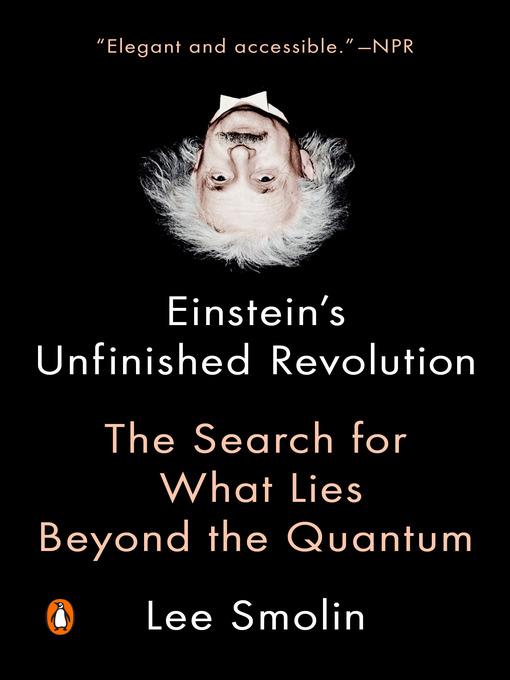
Einstein's Unfinished Revolution
The Search for What Lies Beyond the Quantum
کتاب های مرتبط
- اطلاعات
- نقد و بررسی
- دیدگاه کاربران
نقد و بررسی

January 1, 2019
The latest update on physicists' painful efforts to make sense of quantum mechanics.So far they've failed, but Smolin (Time Reborn: From the Crisis in Physics to the Future of the Universe, 2013, etc.), a founding faculty member of the Perimeter Institute for Theoretical Physics, believes they're on the right track, and readers who pay close attention may understand what he is attempting to explain. Einstein's theory of relativity delivered an accurate explanation of space, time, and matter for most of the universe, but it breaks down at the level of atoms: the quantum world. Quantum mechanics works beautifully but only by postulating paradoxes and nonsensical behavior such as an electron being both a particle and a wave depending on the experiment. Einstein insisted that this didn't make sense, but most colleagues had no objection. Smolin reminds readers that this is an argument between realists and nonrealists. Realists ask, "does the natural world exist independently of our minds?" and "can we understand enough about the laws of nature to explain the history of our universe and predict its future?" Current quantum theory says no. Nobel Prize winner Louis de Broglie proposed a "realistic" explanation in his 1927 pilot wave theory. Unlike the already dominant anti-realist view of Bohr and Heisenberg, his electron remains a particle, and an electron-wave flows through space, directing the particle where to go. The concept of pilot waves did not catch on, but after 1950, some mainstream physicists began looking seriously into realistic theories through concepts such as hidden variables, the many-worlds view, and nonlocality. None of these men are household names, and their studies poke a few holes in traditional theory without simplifying matters. Since quantum mechanics continues to work well, most physicists pay little attention.This is a philosophical debate that has disturbed thoughtful scientists for a century. Its ideas are fundamental, but the details are complex. Smolin works hard and with mixed success to explain these to a lay readership.
COPYRIGHT(2019) Kirkus Reviews, ALL RIGHTS RESERVED.

Starred review from February 15, 2019
In a notebook found beside Einstein's deathbed, Smolin sees evidence that the great scientist struggled to the very end to move beyond the quantum physics he helped create but regarded as misleadingly incomplete. As he limns quantum theory, Smolin explains how its most influential architects have dismissed objective reality as unknowable while opening the door to empirically untestable fantasies, such as the Many Worlds interpretation of the cosmos. Hardly alone in seeking a science that transcends quantum mechanics by connecting with both reality and relativity, Einstein has had theoretical allies. Readers learn, for instance, about Louis de Broglie, whose pilot-wave theory offered a link to reality prematurely dismissed by the mandarins of quantum orthodoxy. Even more impressive as a challenger to quantum antirealism, Roger Penrose has defined spin networks generating a theory of loop quantum gravity and setting the stage for experimental tests on collapsing quantum waves. Still, Smolin candidly admits that so far all of the challengers to antirealist quantum thought have, like Einstein himself, come up short. Determined to press on, Smolin hazards an outline of the principles he and his realist colleagues must rely on as they look for a breakthrough. A tantalizing glimpse of the theoretical possibilities beyond Einstein's grasp.(Reprinted with permission of Booklist, copyright 2019, American Library Association.)

March 1, 2019
For a century, quantum physics has been seen as the golden key to explaining the universe, but if you're getting the sense that it poses problems that are unsolvable or at least unsolved, you are not alone. Scientists argue relentlessly about quantum physics, and theoretical physicist Smolin, a founding faculty member of the Perimeter Institute for Theoretical Physics, says we must go beyond quantum mechanics to get any understanding of the world on an atomic scale that makes sense. Go for it, science lovers!
Copyright 2018 Library Journal, LLC Used with permission.

























دیدگاه کاربران